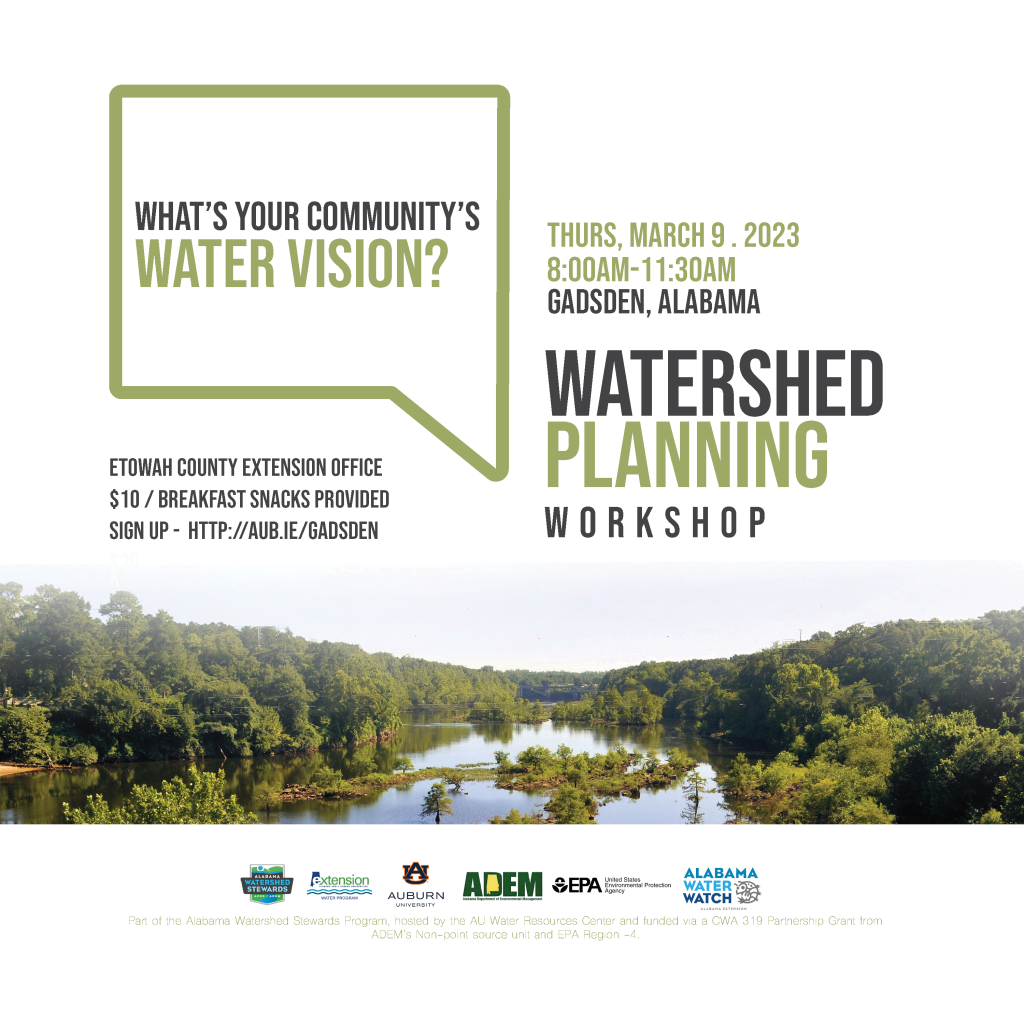
- This event has passed.
Watershed Planning Workshop in Gadsden
Join us to discuss watershed planning opportunities in Gadsden!
Watershed planning is a voluntary integrated approach to responsible resource management by considering the watershed as a whole. These one-day, in-person discussions introduce the process of watershed planning for communities as a voluntary way to plan for a community’s water future and gain opportunities for project funding.
What you’ll learn. Watershed planning involves four aspects; 1) identifying and prioritizing water quality challenges in the watershed, 2) developing increased public involvement, 3) coordinating activities with other agencies, and 4) measuring success through increased and more efficient monitoring and other data gathering.
In this watershed planning workshop you will learn about the following:
- Watershed planning – what it means and how it works
- The basics of watershed management
- Challenges and opportunities in your community
- Funding opportunities related to watershed planning
- How to leverage water resources and community development
- Priorities and next steps
What you’ll do. Listen to and discuss with others in the region working on watershed planning and work with local community members on identifying opportunities you’re your own watershed.
How it Works
Taking a watershed approach represents the awareness that restoring and maintaining Alabama’s waters requires crossing traditional barriers (point vs. nonpoint sources of pollution, county boundaries) when designing solutions. These solutions increasingly rely on participation by both the public and private sectors, where residents, elected officials, and technical personnel all have opportunity to participate. This integrated approach mirrors the complicated relationships in which people live, work, and recreate in the watershed and also suggests a comprehensive, watershed-based, and community-based approach is needed to address these.
Registration is done online at http://aub.ie/gadsden These workshops are open to the public, and locations vary across the state. There is a $10 registration fee, which covers breakfast snacks and a copy of the Alabama Watershed Stewards Handbook.

